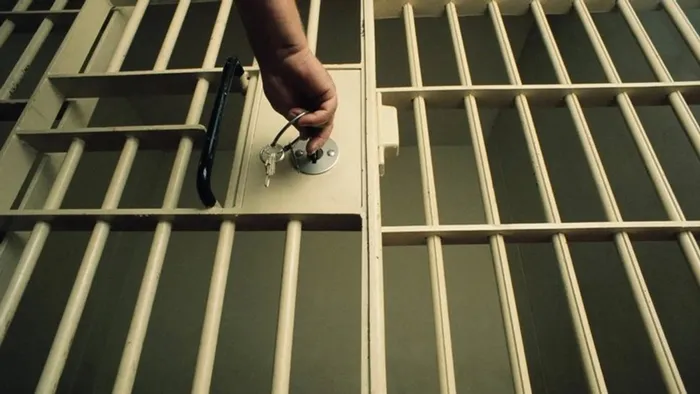
The pair, who also faced the possibility of their seven-year sentences being increased after they took their sentence on appeal, were on trial and convicted at the Oudtshoorn Regional Court.
Image: File
AN OUDTSHOORN father and son who brutally attacked a man with an axe and panga, leaving him permanently paralysed, have failed in their bid to overturn their seven-year sentences.
Their sentence appeals were both dismissed in the Western Cape High Court.
The pair, who also faced the possibility of their seven-year sentences being increased after they took their sentence on appeal, were on trial and convicted at the Oudtshoorn Regional Court.
Marcelino Goliath and Piet Sederstroom both pleaded not guilty to one count of attempted murder. They brutally assaulted Henry Coetzee on August 22, 2021, at Bridgton when they unlawfully and intentionally attempted to murder him with an axe and a panga.
Coetzee was brutally attacked inside the home of a woman who raised him as a child.
According to details which emerged in the trial, the father and son asked Coetzee about his knowledge of a robbery perpetrated on them.
When Coetzee indicated that he did not know about the robbery, Sederstroom attempted to strike him with his axe but missed.
Coetzee fled into a room, where he was attacked by 28-year-old Goliath and 57-year-old Sederstroom.
“The assaults were brutal. Coetzee was unarmed and defended himself against the violent onslaughts using only his forearms. Eventually, Coetzee could no longer lift his arms to defend himself. He fell to the ground. While he lay there, the appellants continued hitting Coetzee all over his body using the panga and axe they brought with them. When Coetzee’s body looked lifeless, the appellants stopped. They left believing that Coetzee was dead. However, he survived,” the court heard during the trial.
Since the attack, Coetzee has been left paralysed, having suffered life-threatening injuries. His J88 form showed that he sustained serious trauma on his head, face, arms, hands, fingers, and legs.
Acting Judge Fareed Moosa said: “I conclude that the sentence imposed by the trial court is not tainted with misdirection; nor is the sentence shocking (or alarming); nor is the sentence capable of sustaining the epithet of startling or disturbingly inappropriate.
“For all these reasons, I propose to dismiss the appeals by both appellants against their respective sentences.
“As regards my prima facie view favouring a heavier sentence, I have decided that this is not an appropriate case where this court’s powers under s 322(6) of the CPA should be used… Although I may have been inclined to impose a longer period of imprisonment if I were the trial court, I am alive to the fact that this is not the test for invoking s 322(6).
“In this appeal, deference should be shown to the trial court’s wide discretion on sentence,” said acting Judge Moosa.
The acting judge said the trial court magistrate applied their mind to the matter as she was tasked with striking a delicate balance between the interests of society on the one hand, and that of the accused on the other.
This was echoed by a comment the magistrate made in the judgment: “Sentences imposed must boost the confidence of the public in our courts and the criminal justice system, but this does not mean that the accused must be sacrificed on the altar of deterrence.”
Cape Times
Related Topics: